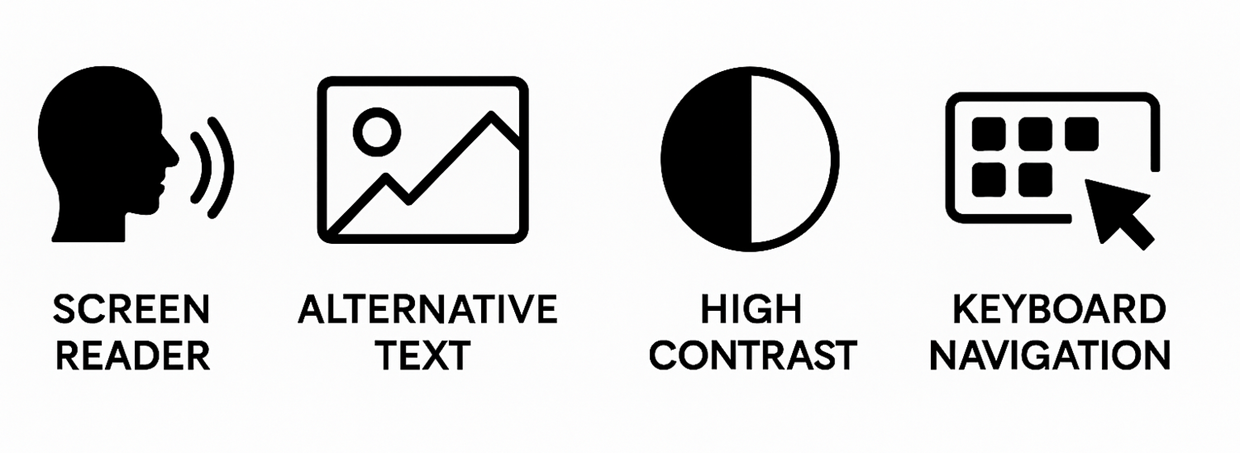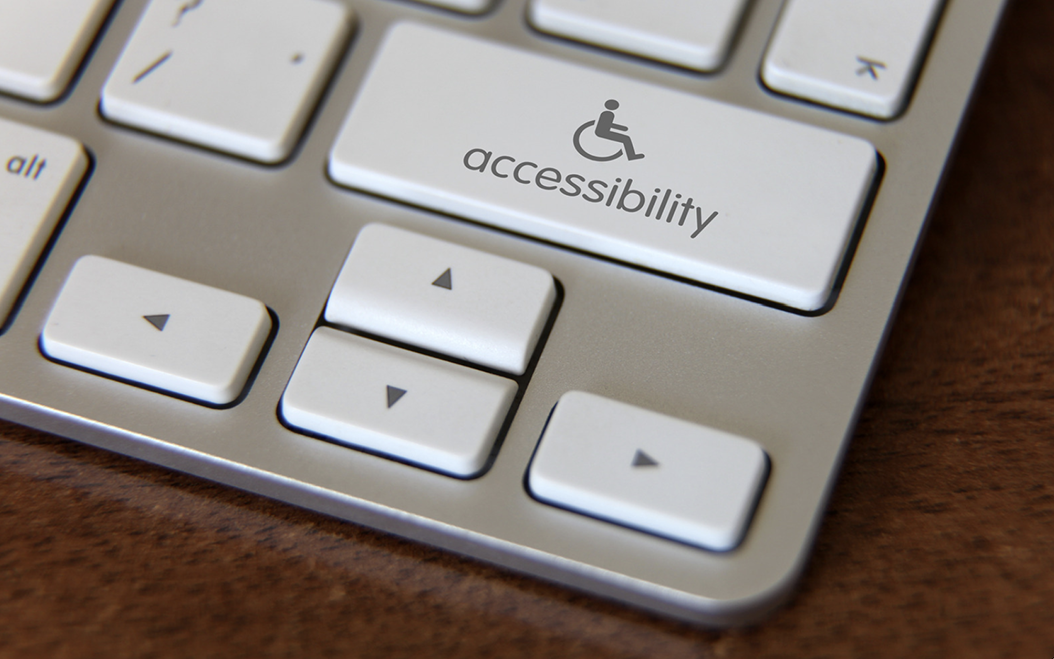May 27, 2025
Accessibility in Reporting Obligation, Responsibility, and Opportunity
Accessibility is no longer just a social ideal – it is enshrined in law and is gaining increasing relevance in the corporate world. For companies in the EU, and increasingly in Switzerland, the question is no longer if they need to communicate accessibly, but how to implement it effectively. This is especially true in reporting – in business, sustainability, and ESG reports – where legal requirements must be met while also ensuring inclusive access for all.
Why Accessibility?
Digital accessibility means that digital content – such as websites, PDFs, apps, and user interfaces – can be used by everyone, regardless of physical or cognitive impairments. It not only promotes equal opportunities but also demonstrably improves user experience, strengthens brand loyalty, and reduces legal risks.
Legal Requirements in the EU
The foundation for current regulations is the European Accessibility Act (EAA), adopted in 2019 and required to be transposed into national law by June 28, 2025. In Germany, this is being implemented through the Accessibility Enhancement Act (BFSG). The law mandates that certain digital products and services – including websites, online shops, and PDF documents – must be made accessible.
PDFs must either be designed to be accessible themselves or be replaced by an accessible HTML alternative. The key standards here are EN 301 549, along with international guidelines such as the Web Content Accessibility Guidelines (WCAG) and PDF/UA.
Relevance for Switzerland
Although Switzerland is not an EU member, many Swiss companies align with European standards – particularly if they operate within the EU market. Additionally, the country’s Disability Equality Act (BehiG) and national digital strategy are driving increasing attention to the topic. More and more public tenders and government-related organizations are already requiring accessible documents.
What does this mean for Corporate Reports?
Those responsible for reporting must ensure that published reports – especially in PDF format – comply with digital accessibility standards. Key requirements include:
- Structured content with proper tagging hierarchy
- Alternative text for images and graphics
- Logical reading order
- Appropriate contrast and color usage
- Keyboard operability and navigation support
Failure to meet these standards may result in warnings, fines, or even distribution bans – depending on the country.
Examples
- Accessibility measures for visual impairments (e.g. blindness, color blindness, low vision)
- Screen reader-compatible content (e.g. correctly structured HTML)
- Alternative text for images
- High color contrast
- Scalable font sizes
- Keyboard navigation
- Accessibility measures for hearing impairments (e.g. hard of hearing, deafness)
- Subtitles for videos
- Transcripts for audio content
- Visual cues instead of audio-only signals
- Accessibility measures for motor impairments (e.g. limited fine motor skills, paralysis, tremors)
- Keyboard or alternative input device operability
- Large, clickable buttons
- Avoidance of time-sensitive interactions
- Accessibility measures for technical limitations (e.g. older devices, slow internet connections)
- Mobile-friendly design
- Fast loading times
- Compatibility across browsers and devices
Practical solutions

Accessible web design
- Keyboard Navigation
- Problem: People with motor impairments or screen reader users can’t use a mouse.
- Solution: All interactive elements (links, buttons, forms) must be reachable via the Tab key.
- The tab order must be logical (e.g. top to bottom, left to right).
- Focus indicators (visible outlines) must be clearly visible.
- Alternative Text for Images
- Problem: Blind users can’t see images.
- Solution: Every image must have a meaningful alt attribute.
- Decorative images should use alt="" so they are ignored by screen readers.
- Color Contrast
- Problem: Users with low vision or color blindness struggle to perceive content.
- Solution: Text and background must have high contrast (e.g. dark blue text on a white background).
- Color should not be the only means of conveying information (e.g. don’t rely solely on “red = error”).
Accessible PDFs
- Tagging
- Problem: Screen readers can’t interpret unstructured PDFs.
- Solution: PDFs must be tagged with a logical structure (headings, paragraphs, lists).
- Tags enable navigation and reading via assistive technologies.
- Reading Order
- Problem: Content is read in the wrong order.
- Solution: The reading order in the PDF must be correctly defined (e.g. heading, then body text, then image description).
- Accessible Forms
- Problem: Form fields are not labeled.
- Solution: Each field must have a descriptive label linked to the field.
- Error messages must be understandable and accessible.
Our partners support you
Creating accessible reports requires specific expertise in design, technology, and compliance. Our certified partners – including specialists in accessible PDF creation and web development – help our clients communicate in a legally compliant and future-proof way. They use the relevant tools and standards to ensure an inclusive and regulation-compliant reporting landscape.
Conclusion
Accessibility is not a “nice-to-have” – it’s a must. Ethically, economically, and legally. Those who invest today will strengthen their brand tomorrow, gain competitive advantages, and protect themselves from sanctions. As a platform provider, we work closely with qualified partners to support you on this journey – every step of the way.
